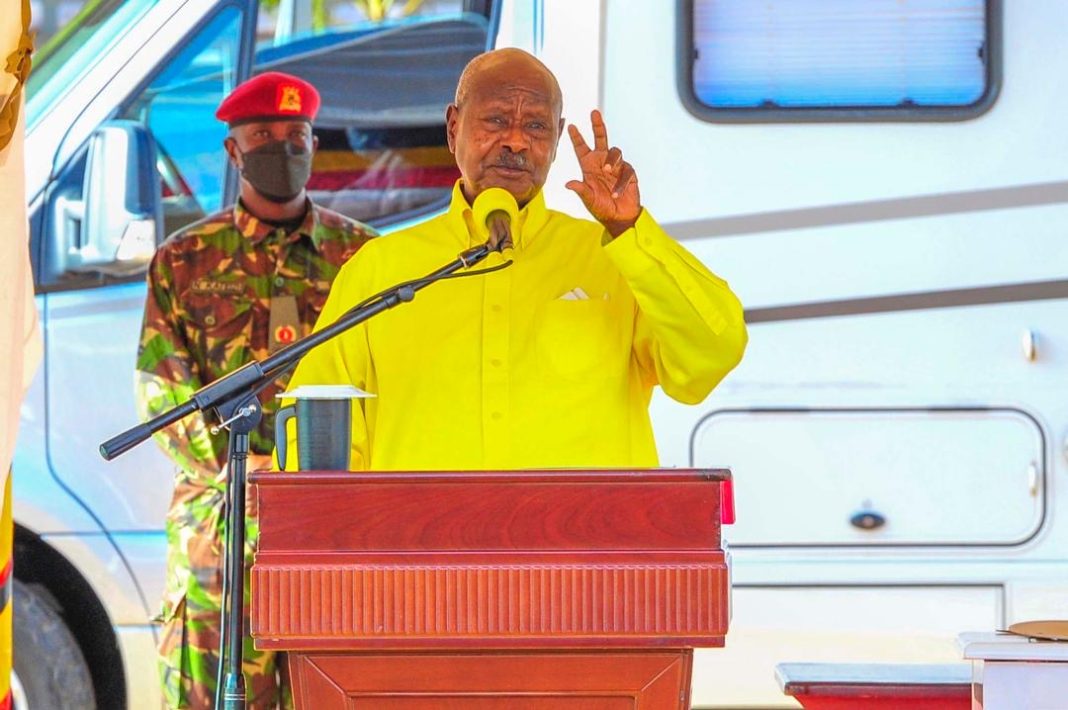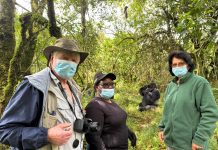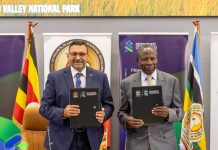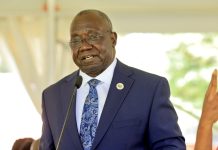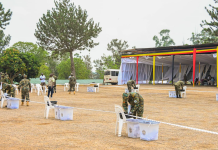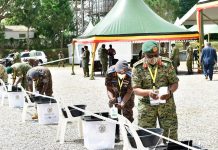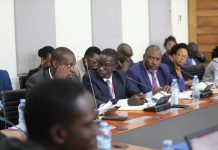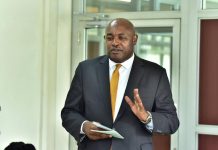“Let us change the laws that govern the civil servants,” President Museveni tells NRM MPs as they agree on Rationalisation
President Museveni has assured Ugandans that after the rationalisation process, the ministries will have the capacity to carry out all the government work once fully supported.
“Because you people say that the civil servants are not active, they don’t respond, okay I know them myself but when we get the army worm, who fights it? These sleepy people come up and fight the army worm. When we get the locusts like when they came, who fought the locusts? It was the army and these sleepy people, if you wake them up, they can do some work,” H.E Museveni said.
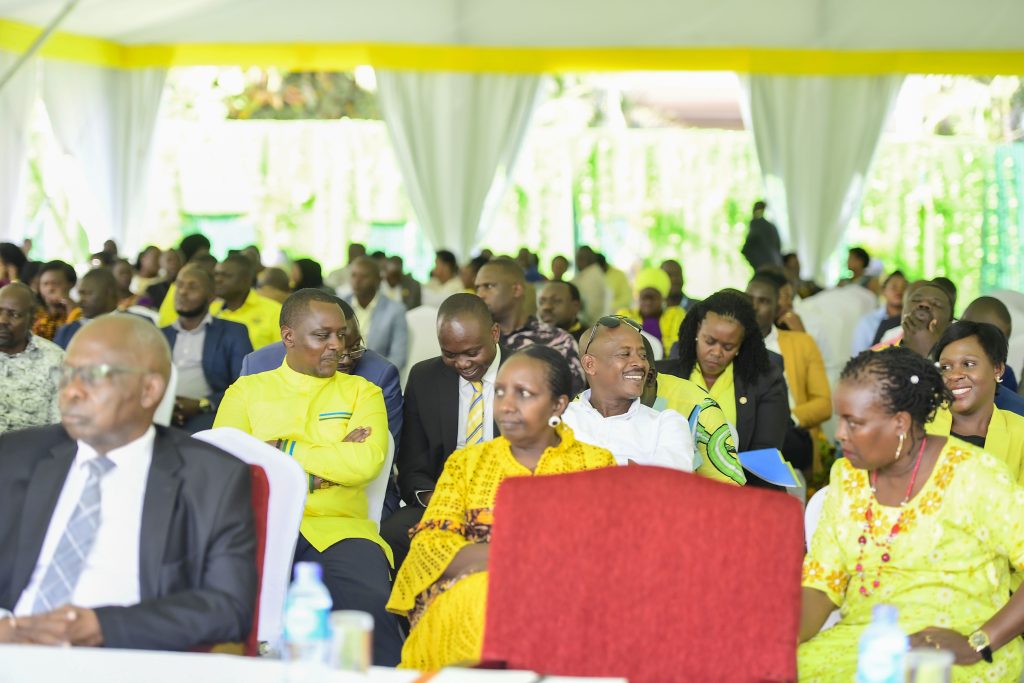
He made the remarks on Friday 6th September 2024 while addressing the parliamentary caucus of the National Resistance Movement (NRM) at state House Entebbe where they agreed on the merger and rationalization of government agencies as a fundamental strategy for optimal resource allocation.
“Mindful of the strategic importance of Rationalisation of Government Agencies and Public Expenditure (RAPEX), warmly appreciative of the Keynote Address and guidance of His Excellency Gen. Yoweri Kaguta Museveni, President of the Republic of Uganda and NRM National Chairperson, which centred on a report and feedback from the meeting of the Parliamentary Committees of Agriculture, National Economy and Finance held on 3rd September, 2024 at State House Entebbe; having exhaustively discussed the Keynote address of H.E the President and National Chairperson of the NRM, do hereby resolve as follows;

- To support the presentation and passing into law by parliament, ALL the Bills on the Rationalisation of Government Agencies and Public Expenditure (RAPEX) providing for a three (03) year transitional period for Uganda Coffee Development Authority (UCDA) and National Information Technology Authority, Uganda (NITA-U),” read the resolution delivered by the government chief whip Obua Denis Hamson who is also the Chairperson of the Caucus of the National Resistance Movement (NRM)
The caucus at State House, Entebbe centred discussions on the merger of Uganda Coffee Development Authority, Diary Development Authority and the National Information and Technology Authority – Uganda (NITA-U) that were still under contention.
According to President Museveni returning government agencies into their parent ministries is meant to streamline operations by eliminating the unnecessary.
“When the committees were here, I said to you people, with rationalisation, we need to remove what is not necessary and live the one which is absolutely necessary. If you say Uganda Coffee Development Authority (UCDA) is so crucial, then let’s remove the ministry and then we have UCDA and I could see the MPs really getting stuck,” H.E Museveni said, adding that he does not agree to the argument that ministries are incapable of managing the huge task ahead because their staff are permanent and pensionable saying the Uganda People’s Defence Forces (UPDF) who are also permanent and pensionable are doing well.
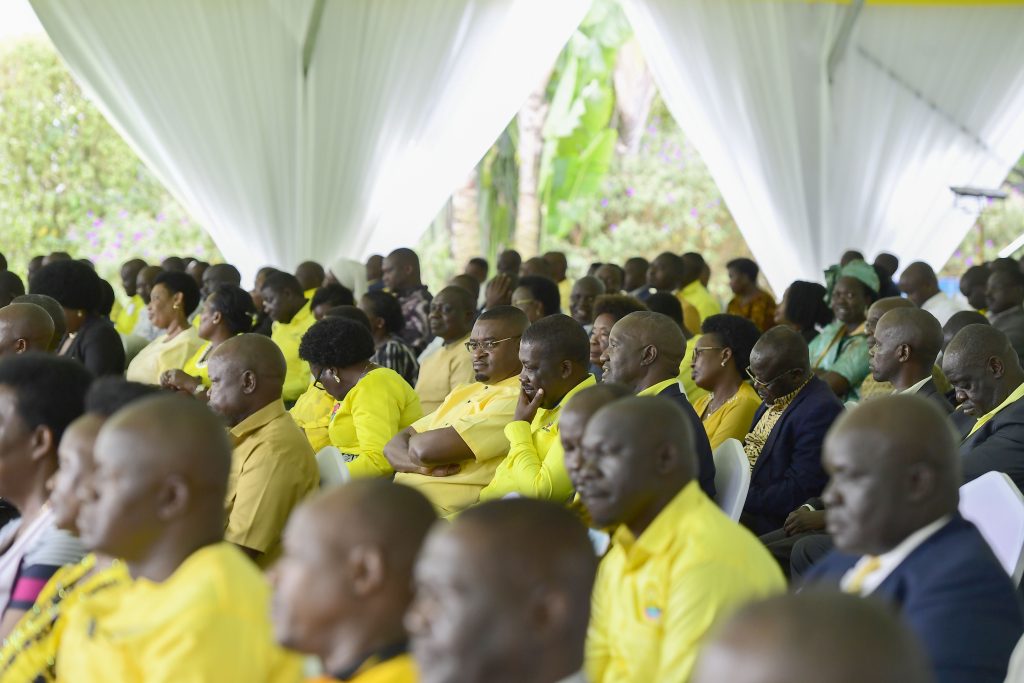
“You give an order to the soldier. He will move immediately, why? Because of the standing orders governing the army. We are the ones governing the country. I am here President and you are also there as members of parliament. Let us change the laws that govern the civil servants including the standing orders,” the President stated.
He said that for coffee it is not quality control alone but about seedlings, Agro-practices, irrigation, controlling crop diseases and pests and all the other levels. The President also believes strengthening research institutions, the ones who produce the seeds such as Kawanda, Namulonge, karengere in Kabale, serere, is also crucial.
“Recently I was in Kenya and they are having a problem, they don’t have coffee seedlings and the reason why they don’t have coffee seedlings is not because of lacking a UCDA but having no research institutions,” he noted.
President Museveni who shared his long experience about the history of Uganda especially the economy, informed legislators that before colonialism Uganda was a society that survived on barter trade and surviving activities which were not mainly based on money such as fishing, the crops, the livestock and the skills (emyoga).
He said after the minimum economic recovery and eliminating smuggling, black market of foreign currency the NRM focused on expansion and diversification of the economy away from the traditional money crops namely; coffee, Cotton, copper, tea and tobacco. Uganda now exports 9 million bags (60kgs) of coffee and expects to hit 12 million bags by December 2024.
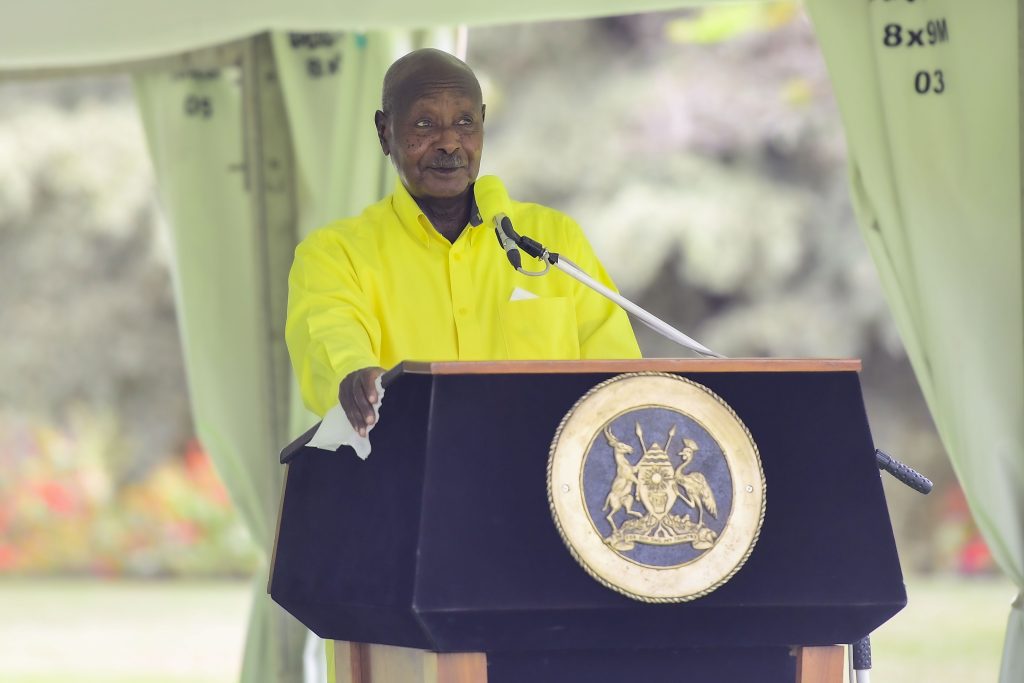
“They were saying Coffee, Maize, milk, bananas, cassava were not cash crops but just for food. In our struggle we rejected this and that’s how we pushed maize and it expanded from 500,000 tons in 1986 to now 5 million tons. Our strategy was to look at the global market and we produce whatever the global market needs,” the president said, adding that a study a study by a group led by Gen Salim Saleh including now the permanent Secretary in the ministry of finance Ramathan Ggoobi recommended for the merging of government agencies which had come up and taking money but doing work which should be done by the ministries.
“So, when the economy has now grown, we said no, let’s rationalise and do what is needed,” the President noted.
The Operational Wealth Creation coordinator in the greater Masaka sub region Col Hassan Samba also addressed the caucus as a special guest about coffee growing in the region.
The Minister of State for Animal Industry is Hon. Lt. Col (Rtd) Bright Rwamirama informed legislators that the ministry is taking on the US model, Germany model and UK to create the Food and Agriculture Authority to deal with food, veterinary drugs, agricultural chemicals and inputs. This is where DDA and UCDA will be absorbed.
“In rationalisation we don’t intend to stop their functions but the ministry shall empower the respective divisions where they fall. We also don’t intend to reduce the workforce in the regions where they have been operating,” Minister Rwamirama said, adding that the services of National Agriculture Advisory Services (NAADS) will be executed under the department of agribusiness and their technical staff will not be laid off.
On the issue of distribution of quality coffee seedlings, the Minister said the ministry seeks to empower the farmers to buy their own seedlings.
“We were requested as a ministry of agriculture to give a list of certified seed dealers who will provide the necessary quality of coffee needed and for many other enterprises. We are not going to lose any functionalities,” he added.
On the other hand, the caucus also resolved to merger the services of National Information and Technology Authority – Uganda (NITA-U) into Ministry of Information Technology & National Guidance but were also given 3 years to transition after Minister for National guidance Godfrey Kabyanga Baluku informed the President of the ongoing 3-year Uganda digital access project (UDAP) worth $200 million of which $150 million is a loan from the World Bank that aims at expanding digital connectivity to selected areas.
“We want to at least have the internet at every parish because projects like the parish development model are systems driven. This project implementation has already started and the World Bank has a very long process which might take us another two years if we try to seek to change the implementer. And we need this project to be delivered before elections because we want every parish to be connected to the internet to also help the Electoral Commission to transmit results,” Minister Kabayanga said.
The resolution received a resounding support from legislators, appreciating President Museveni’s grip on the matter.
The member of parliament for Aringa South County in Yumbe district Hon. Yorke Odria Alioni said rationalisation is long overdue.
“Your Excellency, this rationalization should have ended a long time ago. You met us here last year, we agreed but later things changed, we were infiltrated. I come from West Nile and out of the 12 districts it’s only 2 Zombo and part of Nebbi that access UCDA services, the rest we have never seen,” Alioni said.
The Woman MP for Omoro Catherine Lamwaka who agreed with the President about rationalisation but asked for more support to coffee farmers especially in Acholi sub-region with water for irrigation to sustain their seedlings adding that machines for irrigation are expensive.
The meeting was attended by among others the Prime Minister Robinah Nabbanja and other ministers.


